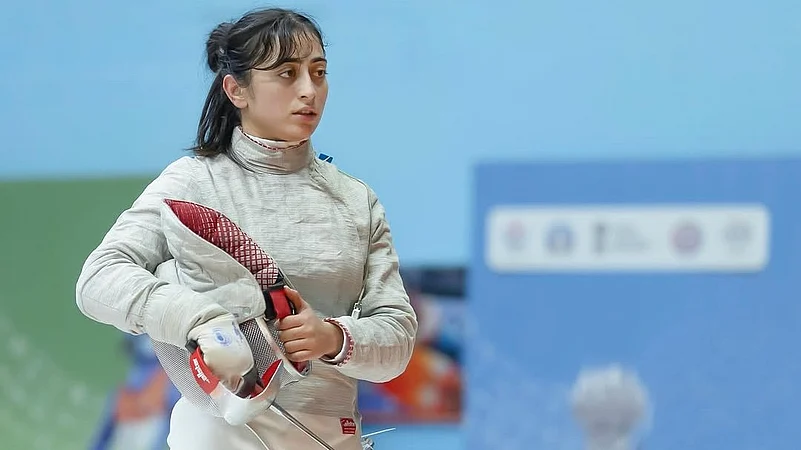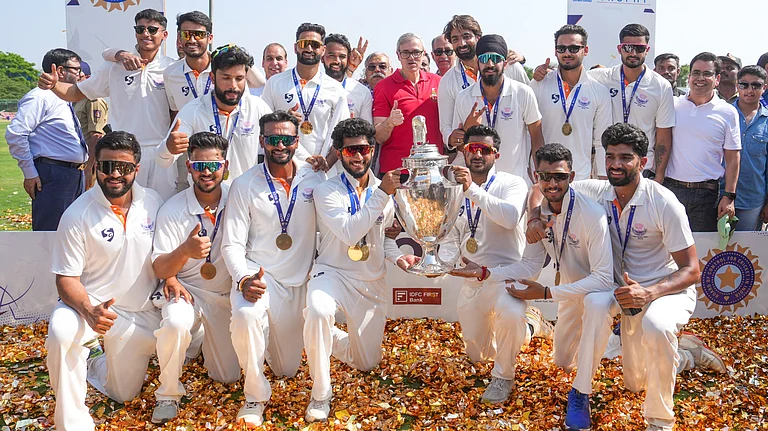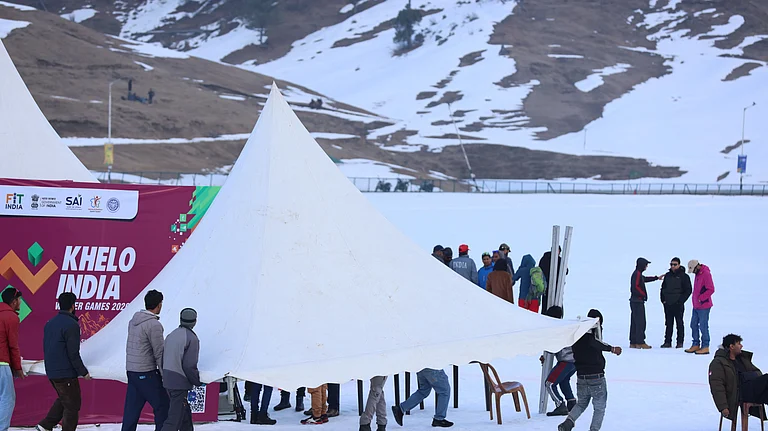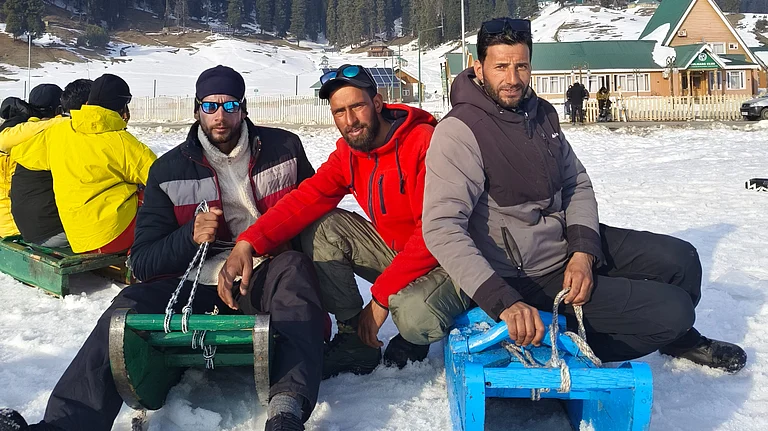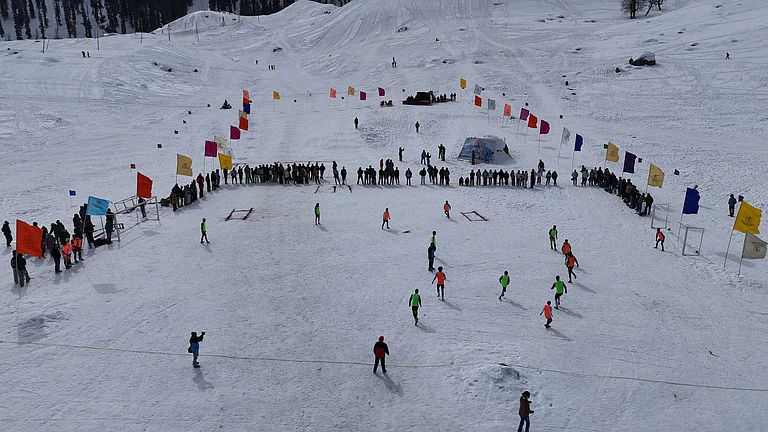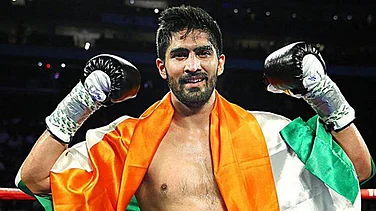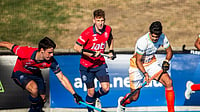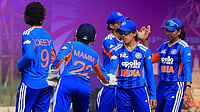When we say fencing in India, there’s one name that instantly comes to mind, Bhavani Devi. The first Indian fencer to qualify for the Olympics, she brought the sport into the national spotlight during the Tokyo 2020 Games. In a country where fencing was barely recognised, she became the face of possibility.
But fencing remains a rare pursuit, especially in regions where sports themselves often fight for attention. That’s what makes Rishika Khajuria’s journey all the more striking.
Being from Jammu and Kashmir, where access and awareness around sports are still developing, Rishika’s journey came with its own unique challenges.
In an interview with Outlook, facilitated by Under Armour, 25-year-old sabre fencer Rishika spoke about her journey, what it takes to pursue fencing in India, and how the sports culture in J&K is slowly starting to shift.
Excerpts:
We began by asking Rishika to take us back to where it all started, how she found fencing and what the early days were like.
Can you take us through your journey? What drew you to fencing and how did it all begin?
It’s a very unique sport, and when I started, I was very young. I took it up in 2019 with a local coach. From there, it’s just been hard work, year after year, and a lot of competitions. That’s how I’ve grown in the sport, step by step, learning through every bout and experience.
You’re from Jammu and Kashmir, how would you describe the sports culture there?
In Jammu, people are now starting to connect with sports, but it wasn’t like that before. Earlier, there wasn’t much awareness or encouragement, and opportunities were limited. Now, with more support from the government, like better facilities and exposure, things are slowly changing.
You can see more young athletes getting involved across different sports. There’s still a long way to go, but the progress is there, and that’s encouraging.
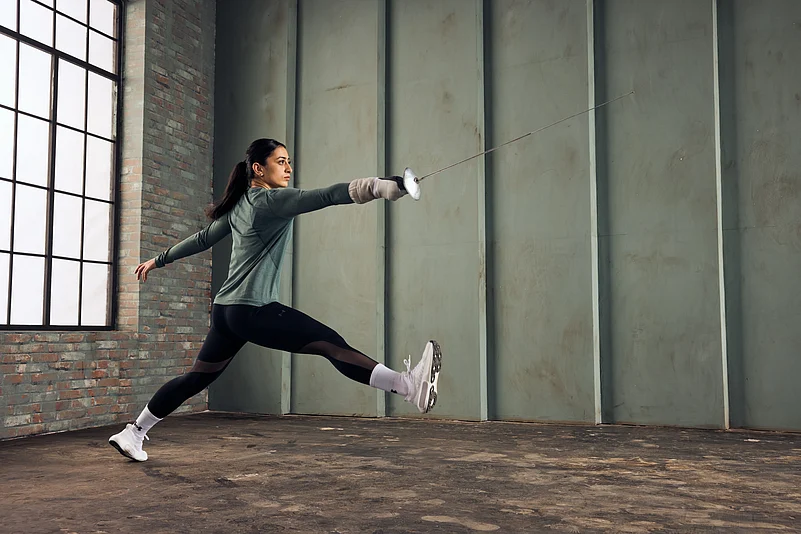
Has fencing started to get more recognition in India now?
Earlier, most people didn’t even know about this sport. It wasn’t something you’d hear about often. But then Bhavani Devi made history, she became the first Indian fencer to qualify for the Olympics. That moment really changed things. It gave fencing a lot of visibility and popularity. After that, the interest and awareness definitely started to grow.
What was the turning point for fencing in India, according to you?
Definitely when Bhavani Devi qualified for the Olympics. That was a historic moment, it put fencing on the map in India. Before that, barely anyone knew about it. But after her achievement, people started paying attention, and the sport began getting the recognition it needed.
From a financial standpoint, is it easy for fencers to secure sponsorship in India?
Fencing is still in the early stages in India, and it’s very tough to gain sponsorship. The government is helping, they’re doing everything they can to support and push the sport, but it still needs a lot more attention. Hopefully, one day it’ll get there.
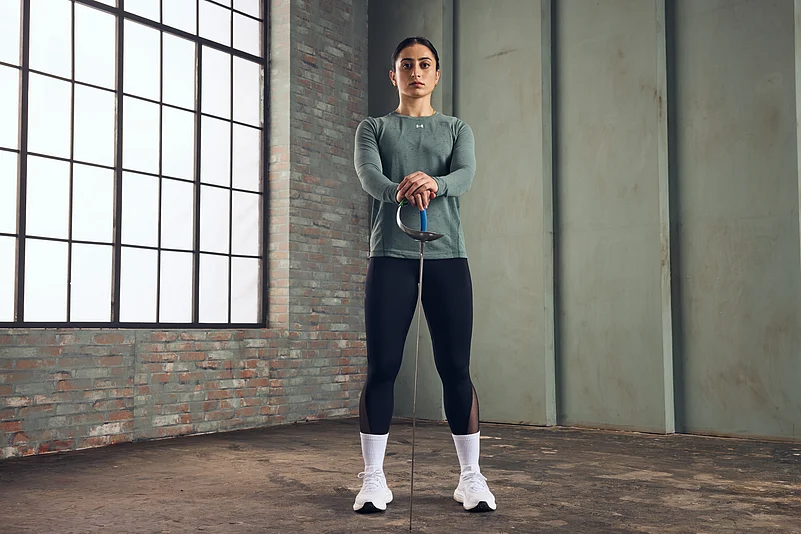
What advice would you give to someone who’s just starting out in fencing?
Fencing is a very unique and royal sport. A lot of people look at it and think it’s just sword fighting, but in reality, it’s like physical chess. You need strength, but also strategy. Everything happens in a split second, and you have to make decisions instantly.
It takes a lot of reflexes, a sharp mind, and discipline. If someone wants to pursue it, they should know it’s demanding but also beautiful, and with hard work, you can go really far.
These days, visibility isn’t just about performance, it’s also about presence. And Rishika is already making her mark on social media. We wrapped up by talking about the role platforms like Instagram play in an athlete’s journey.
How important is social media presence for an athlete today?
In today’s scenario, it’s very important for an athlete to be on social media. Brands connect with you through those platforms, and for a sport like fencing, which not many people know about, it really helps spread awareness. A lot of people came to know about fencing, and even about me and my journey, through social media.







